Is it Rude to Ask Wedding Guests to Pay for Dinner? Exploring Modern Etiquette
Weddings often stir up questions about what’s acceptable to ask of guests. You might wonder if it’s rude to ask your wedding guests to pay for their dinner. Generally, asking guests to pay for their own meal at a traditional wedding is considered unusual and may be seen as impolite. This can surprise some guests, especially if they expect hospitality as part of the celebration.
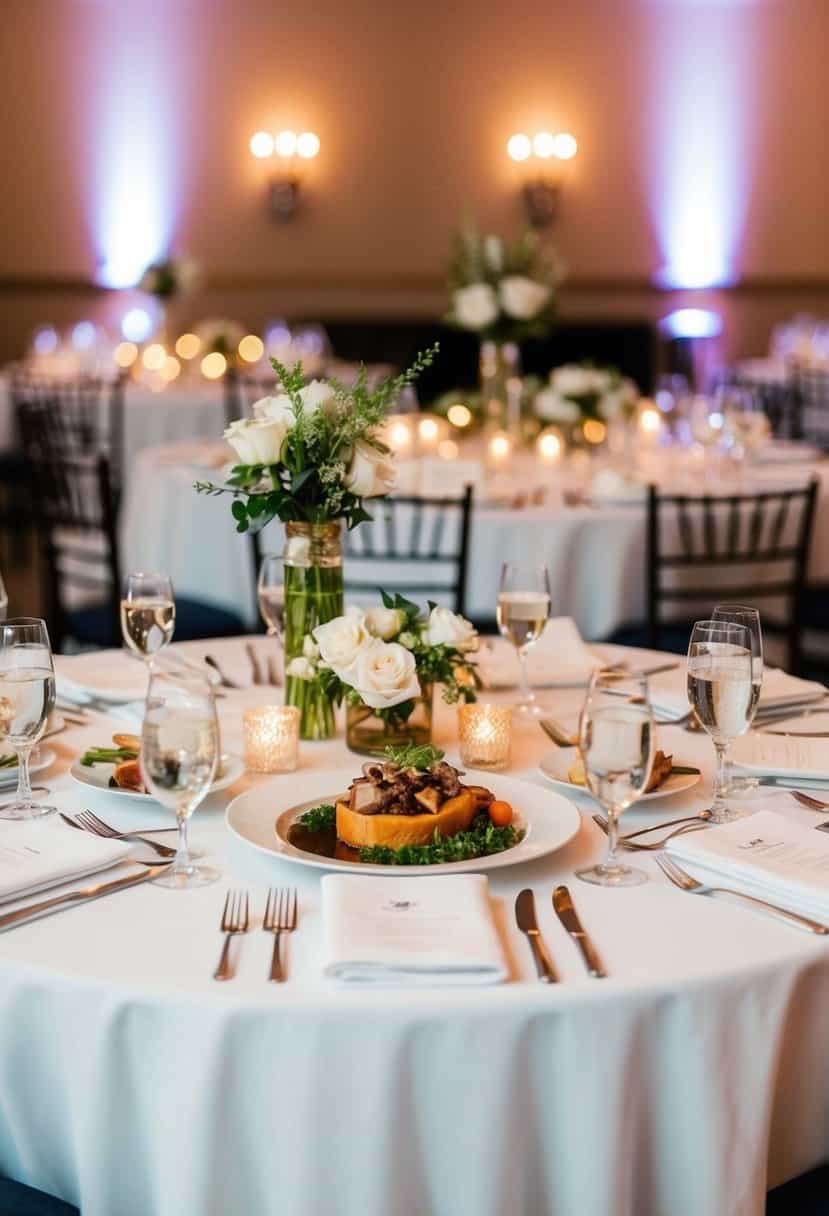
Yet, some circumstances might soften this rule. If you plan a casual or non-traditional celebration, guests might be more understanding of covering their own meals. This approach could be more common in smaller gatherings or destination weddings.
When you communicate openly and early, your guests will have time to prepare. Sharing your plans on the invitation or a wedding website can help manage expectations. By doing so, you will create a positive experience for everyone involved.
Understanding Wedding Etiquette

When planning a wedding, it’s important to balance tradition with personal preference. Understanding who pays for what can help you navigate these decisions smoothly.
Traditional Roles and Responsibilities
In traditional wedding etiquette, specific roles and costs are usually assigned to the families of the bride and groom. The bride’s family often pays for the ceremony, the reception, and the flowers. Meanwhile, the groom’s family might cover the rehearsal dinner and some other aspects. Bridesmaids typically pay for their dresses and travel, while groomsmen cover their attire and travel expenses.
These roles have evolved over time, but understanding them can give you context for today’s expectations. If you’re considering asking guests to pay for dinner, it might not align with traditional norms. Consulting with an etiquette expert could provide useful insights.
Modern Twists on Wedding Costs
Nowadays, many couples opt to share costs or plan their weddings based on personal circumstances. It’s becoming more common for couples to pay for most of the wedding themselves. This includes choosing to have smaller celebrations or inviting fewer guests. Sometimes, asking guests to contribute, like paying for their meals, is an option.
While traditional etiquette might frown upon this, some argue it’s a practical approach if done with transparency. Open communication with guests about what to expect can help ease any discomfort. Factors like budget constraints and personal values often shape these modern decisions. For more details, check out Is it ok to ask the wedding guests to pay for their meal?.
Budgeting for Your Big Day
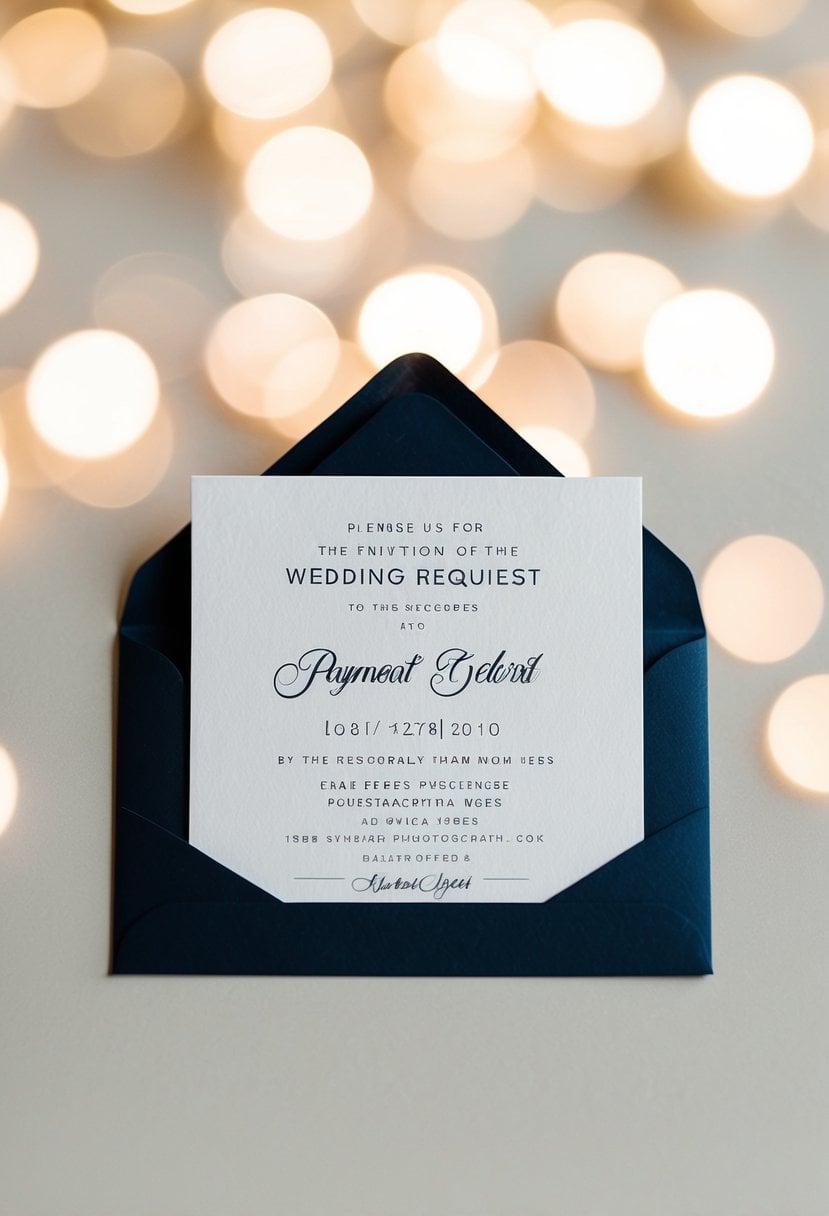
Planning your wedding budget is key to making your special day perfect without overspending. It’s important to understand how to allocate your funds wisely and consider how many guests you’ll invite.
Allocating Funds for Different Aspects
When you start planning, it’s helpful to divide your wedding budget into categories. Consider spending about 40% on the venue and catering, as this is usually the most significant expense. Photography and videography might take up around 15%, with music and entertainment around 10%. Flowers and décor can each also take about 10%, while attire and beauty are around 5% of your budget. Don’t forget transportation, which can be another 3%. This way, you set clear expectations for each area.
Think about any unique touches you want. These might change your budget slightly, so have a small buffer for surprises. This approach helps you maintain control and enjoy your wedding day stress-free.
The Impact of Guest List Size on Expenses
Your guest list size directly affects your costs. A larger list means booking a bigger venue and more meals, which can quickly add up. To manage this, consider a smaller gathering. This can reduce costs significantly and make your wedding feel more intimate. It’s important to prioritize who you really want to attend.
By keeping your guest list concise, you can focus on creating a richer experience for those who matter most to you. This strategy not only saves money but also makes the event more personal and memorable for everyone involved.
Invitations and Communication Tips
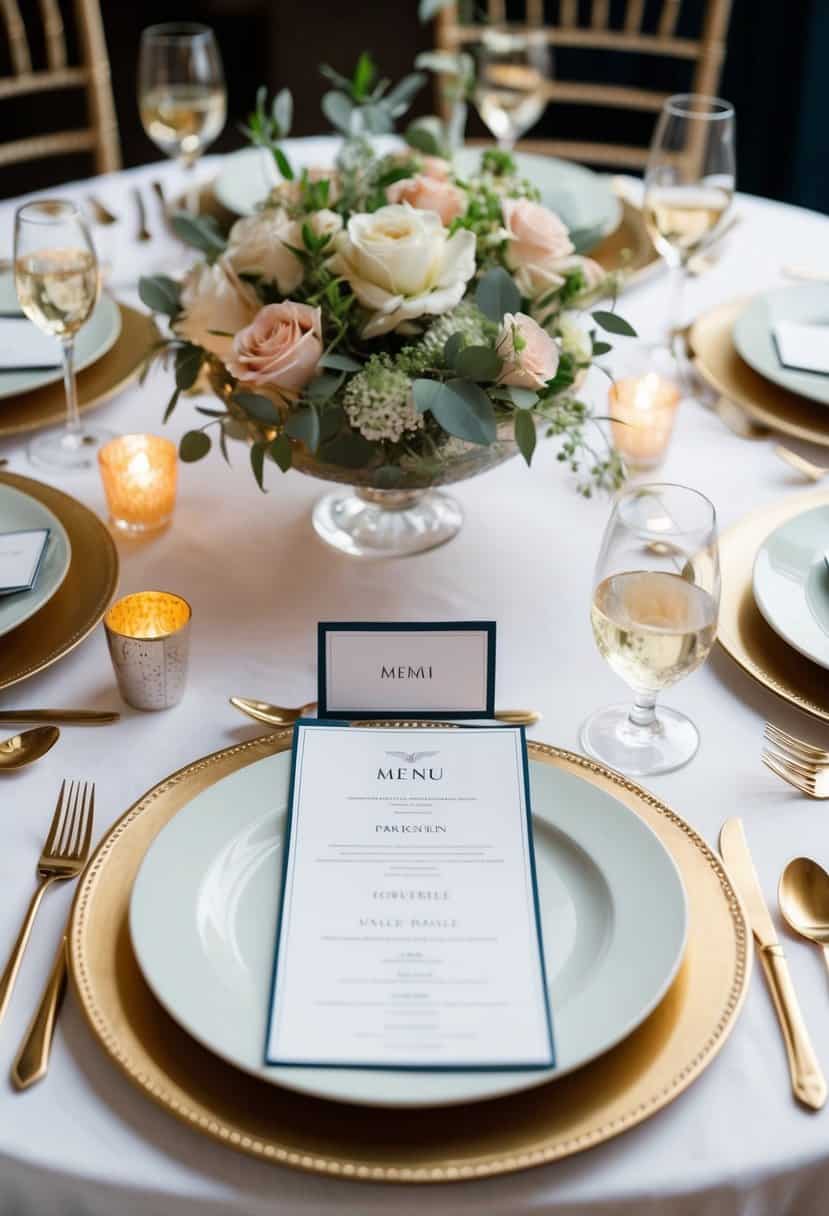
Getting your invitations right is key to setting the tone for your wedding. Clear communication is vital, especially if you plan to ask guests to cover their meal costs.
How to Phrase Your Invitations
When writing wedding invitations, clarity is crucial. If you’re asking guests to pay for their meals, it’s important to be direct yet polite. Use clear language to avoid confusion.
Consider saying something like, “Join us for dinner where each guest may choose their meal from the menu.” This lets guests know in advance without making it sound awkward.
You can also use italics or bold to emphasize details, such as the date, time, and place, to ensure they stand out. You can explore more wedding invitation etiquette for additional tips on wording.
Guidance on RSVP Requests
Asking for an RSVP is essential for planning. Clearly state the RSVP deadline on the invitation. This helps you organize seating and meal arrangements, especially if guests are paying for their meals.
You might include:
Please RSVP by [date] to help us finalize arrangements.
Using a mix of traditional mail and online systems can increase response rates. Some couples find online RSVP platforms convenient and quick. They streamline responses and reduce the chance of missing any replies.
Ensure the RSVP process is simple. Fewer steps make it easier for your guests to confirm their attendance without hassle, fostering a positive impression from the start.
Reception Details and Guest Expectations
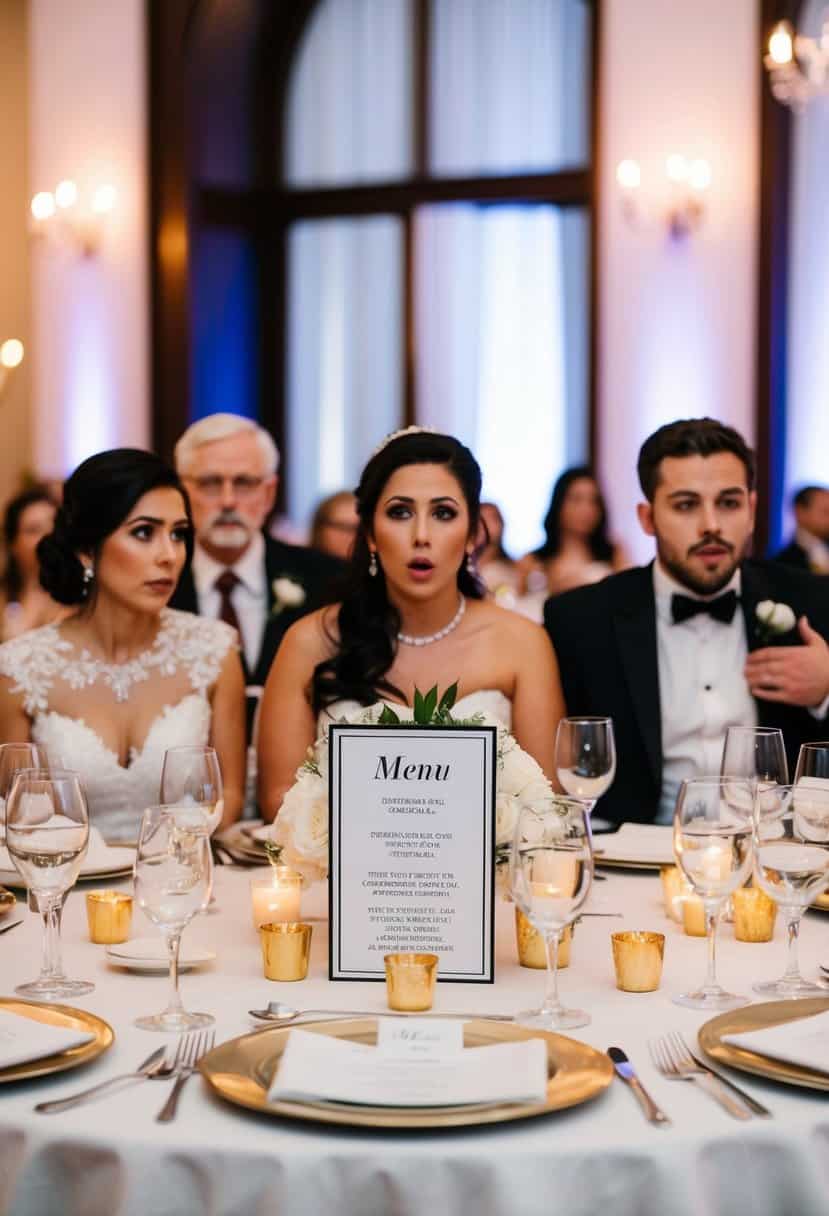
When planning a wedding reception, it is important to balance your desires with your guests’ expectations. This includes making thoughtful choices about dinner arrangements and whether or not to offer a cash bar.
Dinner Arrangements and Alternatives
Choosing how to handle dinner at your reception can be tricky. Traditionally, the hosts provide a meal, but if your budget is tight, you have options. You might host a smaller event with fewer guests or consider a potluck-style gathering. This allows everyone to contribute to the meal.
Another option is to hold your reception at a restaurant where guests can order their own meals. Some think it’s acceptable to ask guests to pay for their own meals if the event is casual. Yet, for formal receptions, it may be seen as inappropriate. Check if custom approaches like these fit your guest expectations based on regional or cultural norms. You can read more about whether it’s okay to ask wedding guests to pay for their meal on this discussion.
Navigating the Cash Bar Debate
Deciding whether to have a cash bar or an open bar during your reception is another important aspect. An open bar, where drinks are free, is often expected in more formal settings. Yet, it can be costly. If you go for a cash bar, where guests pay for their drinks, ensure that everyone knows this ahead of time.
Offering a limited number of free drinks or only covering soft drinks can be a good compromise. Some hosts use a drink ticket system as a way to control spending while still providing some free beverages. It’s crucial to consider what your guests might expect based on the style of your event. More details about the costs and etiquette related to weddings can be found here.
Pre- and Post-Wedding Events
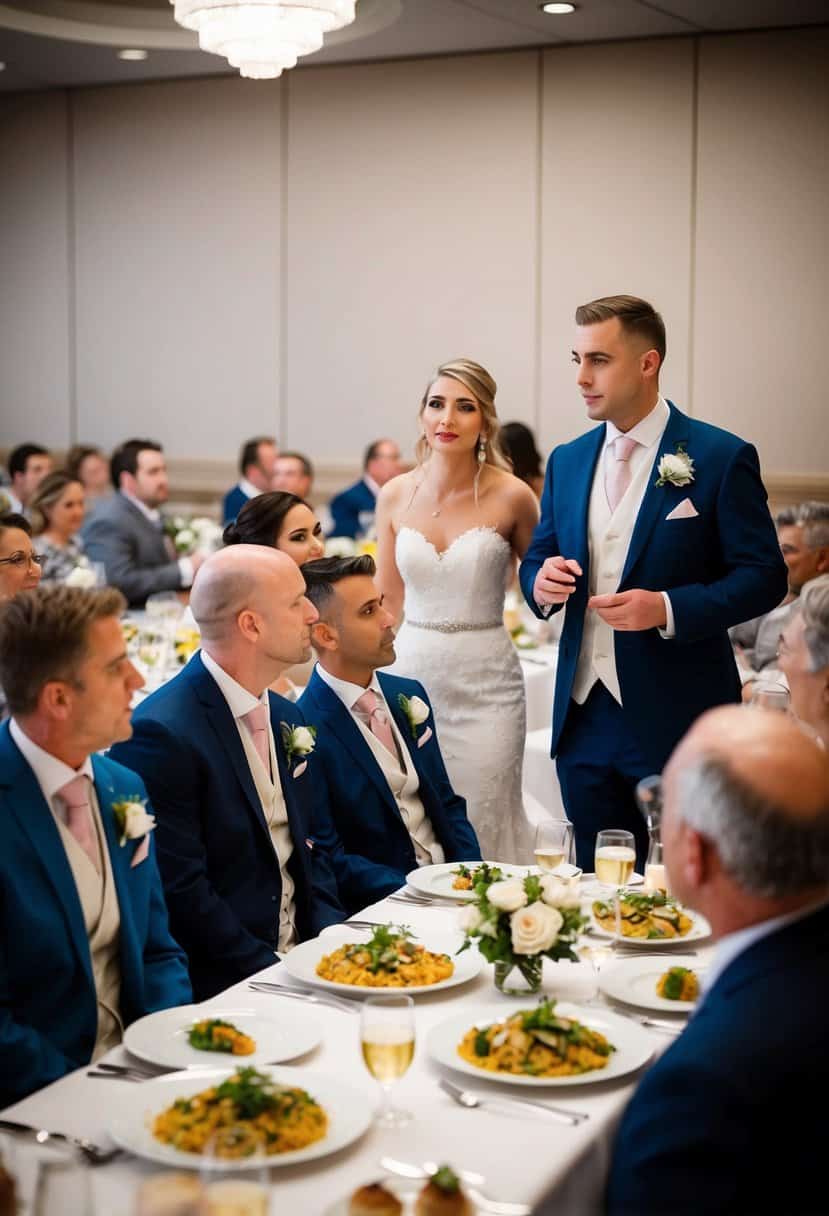
Pre- and post-wedding events are important for celebrating your big day with friends and family. These events can involve close family members or even a large group of friends, depending on your plans.
Rehearsal Dinner Expectations
The rehearsal dinner often takes place the night before your wedding. This event usually includes close family and the wedding party. Traditionally, the groom’s family hosts, but it can be arranged by anyone. You may choose a small, intimate setting with a relaxed atmosphere or a more formal dinner, depending on your preferences.
At the dinner, you can practice the ceremony and indulge in a meal. This is a great time to express gratitude to those participating in your wedding. Speeches, toasts, and gift-giving can add a personal touch. Remember to communicate any specific plans or dress codes to your guests.
Bridal Shower and Bachelorette Party
A bridal shower is a daytime event where guests celebrate the bride with games, gifts, and food. It is usually organized by the maid of honor or close friends. This event can be themed, whether it’s a tea party or a garden brunch, and should reflect the bride’s tastes. Traditionally, it’s attended by female family members and friends, but this can vary.
The bachelorette party is a separate, lively event often planned by friends. It may involve a night out, a weekend getaway, or an experience tailored to the bride’s interests. Remember, these events are about making lasting memories, so consider what activities the bride would enjoy most.
Planning for the Honeymoon
The honeymoon is your first holiday together as a married couple. Planning involves choosing a destination. You can choose a tropical beach, a bustling city, or a scenic countryside. Accommodation, activities, and travel arrangements are key factors.
Consider what type of experience you both want. Some prefer relaxation, while others opt for adventure or cultural exploration. Make sure to set a budget and plan around it. Coordinating the honeymoon soon after the wedding ensures a seamless transition from wedding festivities to your getaway.


